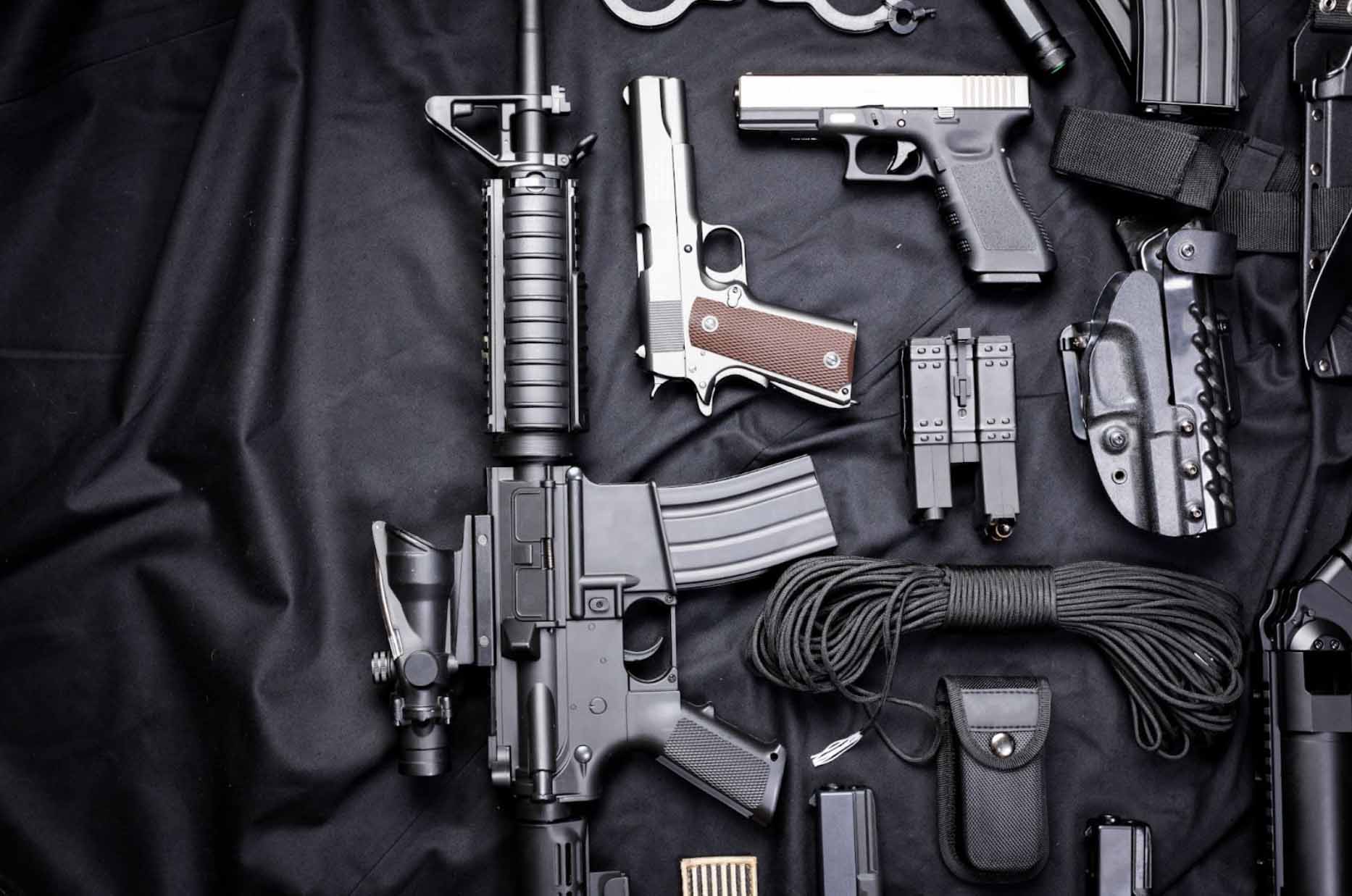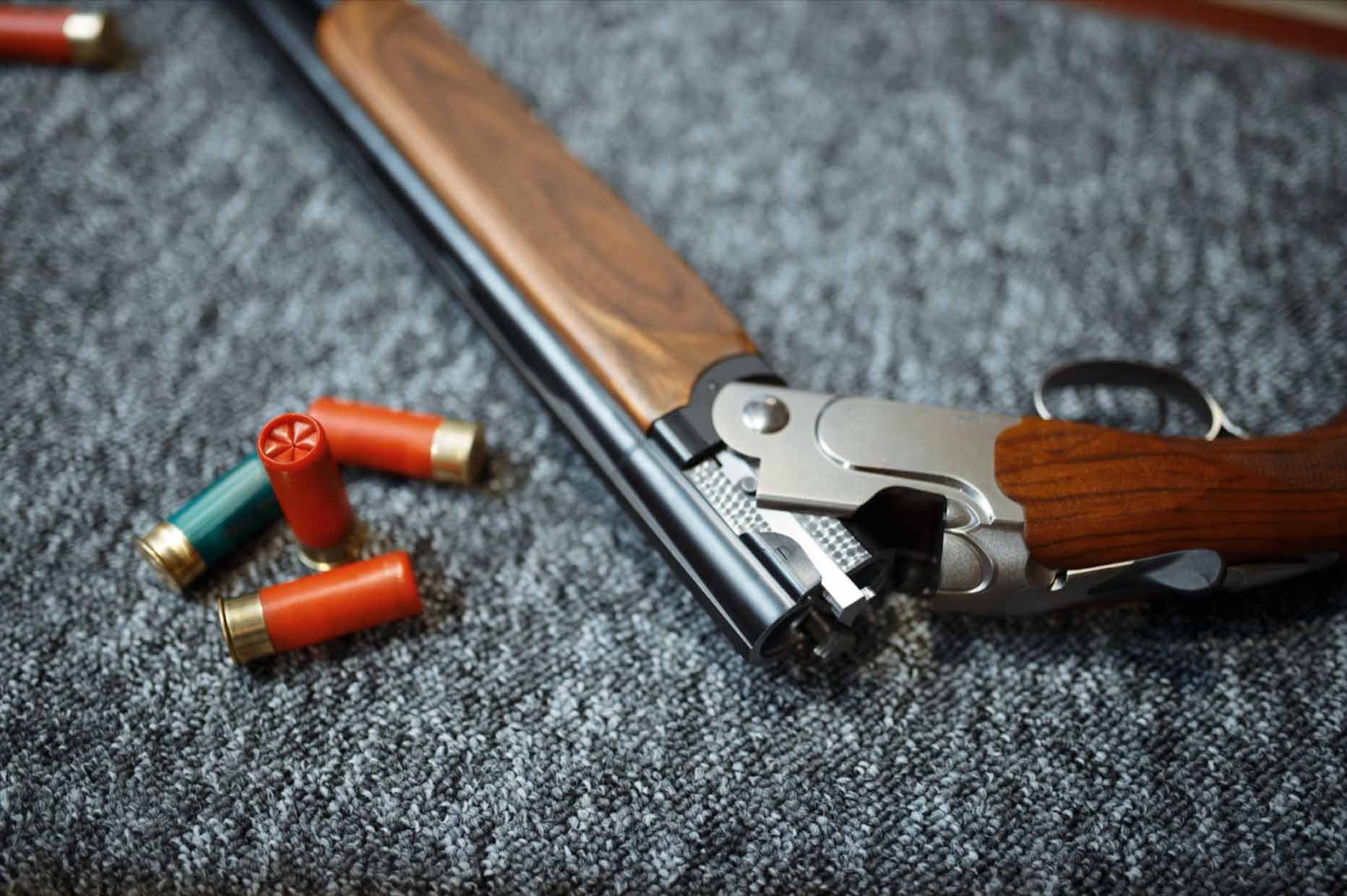Jun 26th 2024
Comparing Guns for Self-Defense Handguns vs. Shotguns vs. Rifles
Comparing Guns for Self-Defense: Handguns vs. Shotguns vs. Rifles
Gun owners and enthusiasts often debate the merits of handguns, shotguns, and rifles. That’s because your gun choice can considerably affect the effectiveness of your defense strategy. However, understanding the strengths and limitations of each can help in making an informed choice. Careful consideration ensures you are prepared for various self-defense scenarios.
Factors to Consider When Choosing a Firearm for Self-Defense
Several factors influence the decision to choose a firearm for self-defense. These include several considerations. Each factor impacts how effective the gun will be in a self-defense scenario.
Ease of Use
The firearm should be user-friendly. Complex mechanisms can hinder response time during emergencies. A simple design ensures quick and efficient operation. Consider the ease of reloading and clearing malfunctions.
Storage
Proper storage is vital for safety and accessibility. Handguns are easy to store in small safes or drawers, while shotguns and rifles require more space and secure storage solutions. Quick access should maintain safety.
Stopping Power
Stopping power refers to the firearm's ability to incapacitate a threat. Handguns offer less stopping power than shotguns and rifles. Shotguns provide significant stopping power at close range, while rifles offer high stopping power at longer distances.
Effective Range
Effective range determines how far a firearm can accurately engage a target. Handguns are ideal for short-range encounters, shotguns are effective at short-to-medium ranges, and rifles excel at long-range engagements.
Legal Considerations
Different regions have specific laws regulating firearm ownership and use. Ensure compliance with local regulations to avoid legal issues. Some areas may restrict certain types of firearms or require particular permits. Stay informed about changes in legislation.
Understanding the Differences of Firearms
Understanding the differences between various firearms is essential for effective self-defense. Each type of firearm has unique characteristics and advantages tailored to specific scenarios. Recognizing these distinctions aids in selecting the most suitable weapon for personal protection.
Handguns for Self-Defense
Handguns are popular for self-defense because they are straightforward, even for beginners. Their compact size makes them convenient to carry and store. Handguns are easily concealable, making them ideal for those who need to keep a weapon close without alarming others. Additionally, they can be stored in small spaces, such as drawers or safes, ensuring quick emergency access.
Ammunition Capacity
The ammunition capacity of handguns varies, with many models holding between 10 and 15 rounds. This capacity allows for multiple shots without reloading, which can be crucial in self-defense. Reloading is also typically quick and easy with handguns, which is essential during a high-stress situation where time is critical.
Effective Range
Handguns are effective at short ranges and designed for close-quarter encounters, making them suitable for home defense. However, their accuracy decreases significantly at longer distances. This limitation means that while they are excellent for indoor or close-range defense, there might be better options for bigger, open spaces.
Pros and Cons
The pros and cons of handguns include ease of use and concealability. However, their limited range and lower stopping power than shotguns and rifles are drawbacks. Regular practice is required to maintain proficiency with a handgun, ensuring that users can handle them effectively under pressure.

Shotguns for Self-Defense
Shotguns offer significant stopping power, making them highly effective for self-defense. Their impact can neutralize a threat quickly, and the wide spread of shots increases the chance of hitting an assailant, even under stress. Shotguns are versatile in ammunition types, with options including birdshot, buckshot, and slugs, each suited for different scenarios. This versatility allows property owners to choose the best ammunition for their needs.
Effective Range
The effective range of shotguns varies by ammunition type, but generally, they are effective at short to medium ranges. The spread of the shot can cover a wide area, making precise aiming less critical in high-stress situations. However, shotguns are less effective at longer distances, limiting their use in expansive regions.
Handling and Maneuverability
Shotguns can be challenging to handle and maneuver. They are larger and heavier than handguns. That makes them less suitable for individuals with less physical strength or for use in smaller spaces. Their size and weight can also be a disadvantage in confined environments where quick movements are necessary.
Benefits and Drawbacks
Shotguns' benefits include their stopping power and versatility. However, their size and weight can be disadvantageous. Hence, training is essential to handling a shotgun effectively. Regular practice is needed to manage recoil and become proficient in aiming and shooting accurately under pressure.

Rifles for Self-Defense
Rifles are known for their precision and accuracy. They excel at longer ranges, making them suitable for defending extensive properties or rural areas. They can hit targets accurately at distances where handguns and shotguns fall short, making rifles ideal for outdoor defense and scenarios requiring high accuracy.
Ammunition Options
Ammunition options for rifles are varied and powerful, with different calibers providing different penetration and stopping power levels. It allows for customization based on specific defense needs. Choosing the right caliber can significantly affect the rifle's performance in self-defense.
Handling and Ergonomics
Rifle handling and ergonomics can be advantageous. Modern rifles are designed for comfort and ease of use, with features such as adjustable stocks and ergonomic grips improving handling, even for prolonged use. These features make rifles more user-friendly and adaptable to different body types and preferences.
Advantages and Disadvantages
Rifles' advantages include their accuracy and range, but they are less suitable for close-quarters combat. They also require extensive training to use effectively, demanding a higher level of proficiency to operate safely and accurately in self-defense situations. Additionally, the risk of over-penetration in urban or densely populated areas is a significant drawback.
Evaluating Handguns vs. Shotguns vs. Rifles
Choosing the appropriate firearm for self-defense involves understanding the distinctions between handguns, shotguns, and rifles. Each type offers unique benefits suited to different scenarios and user needs, which must be carefully considered to make an informed decision.
Situational Effectiveness
Situational effectiveness varies between handguns, shotguns, and rifles. Handguns are best for close-quarters combat and ideal for home and personal defense in small spaces. Shotguns offer a range and stopping power balance, suitable for medium-range defense. Rifles excel at long-range defense, perfect for large properties or outdoor scenarios.
Ease of Use and Training Requirements
Ease of use and training requirements differ among these firearms. Handguns are generally easier to learn and operate, even for beginners. Shotguns require more training to handle recoil and aiming effectively. Rifles demand the most training due to their complexity and the precision required for long-range shooting.
Storage and Safety Considerations
Storage and safety considerations are crucial when choosing a firearm. Handguns are easily stored and accessed, fitting in small safes or drawers. Shotguns require more space and secure storage solutions to ensure safety and quick access. Rifles need even more storage space and are often less accessible quickly, necessitating careful planning for storage.
Legal and Regulatory Considerations
Understanding and complying with local laws is essential to avoid legal complications. Responsible firearm ownership includes secure storage and regular maintenance, ensuring it is always ready for use. Safe handling practices and legal compliance are essential aspects of responsible firearm ownership.
Cost Comparison
Cost comparison shows that handguns are typically the most affordable option, making them accessible to many users. Shotguns are moderately priced, offering a balance between cost and functionality. Rifles can be expensive, especially high-quality models, and this cost extends to ammunition and maintenance, which should be considered when budgeting for a self-defense firearm.
Choosing the Right Firearm for Self-Defense
Matching the firearm to your specific needs is essential for practical self-defense. Consider the layout of your property and typical threat scenarios when making your choice. Handguns are ideal for small spaces and personal defense. Shotguns offer a balance suitable for larger areas. Rifles are best for expansive properties and long-range defense needs.
Importance of Training and Practice
Gun training and practice are crucial for the effective use of any firearm. Regular practice ensures proficiency and confidence in handling the gun. Training should include scenarios that mimic potential self-defense situations to prepare for real-life encounters. This practice is vital for maintaining readiness and ensuring effective response in emergencies.
Legal Implications and Responsible Ownership
Understanding and complying with local laws is a must to avoid legal complications. Responsible ownership includes secure storage and regular firearm maintenance, ensuring it is always ready for use. Safe handling practices and legal compliance are essential aspects of responsible firearm ownership.
Making an Informed Decision
Making an informed decision involves weighing all these factors to choose the right firearm for self-defense. The choice will depend on individual circumstances and needs, such as the specific threats faced and the environment in which the firearm will be used. Gun owners and enthusiasts must carefully evaluate their options to ensure they choose the most suitable firearm for their self-defense needs. This careful consideration ensures preparedness and enhances personal and property security.
The Role of Shooting Ranges in Firearm Proficiency
Gun shooting ranges are invaluable for gun owners and enthusiasts to hone their skills. Regular practice at these facilities allows individuals to become proficient with their chosen firearms, whether handguns, shotguns, or rifles. By understanding the unique characteristics and appropriate applications of each type of firearm and regularly training at shooting ranges, gun owners can ensure they are well-prepared for any self-defense situation.
Visit the Gunline Shooting blog for expert advice on guns and comprehensive training. Equip yourself with the knowledge and skills needed for practical self-defense.

